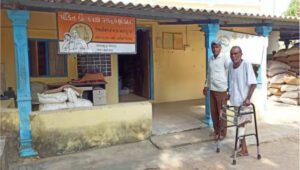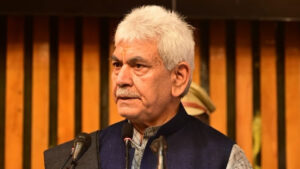Politics News
Terence Tao, often heralded as one of the most prodigious mathematicians of our time, boasts an intellect that has left many in awe. His…
A North Carolina resident has initiated a legal action against…
Canada has refused an Indian travel advisory and cautioned travellers…
In a recent statement concerning the removal of his grandfather Sheikh Mohammad Abdullah’s name from…
On Wednesday, for the first time, the light combat aircraft (LCA) Tejas successfully test-fired the…
Eight of Donald Trump’s challengers fought for second place Wednesday night because the former president…
Following Chandrayaan-3’s successful landing, Indian stock markets have received a considerable boost, with experts speculating…
Leaders of India and China Forge Momentary Dialogue Amidst Global Gathering – In a moment…
In a momentous ruling, the Supreme Court of India has once again asserted the vital principle of organizational autonomy regarding the determination of employees’ superannuation age. The case of “Central Council for Research in Ayurvedic Sciences v. Bikartan Das” has spotlighted the authority of institutions to set retirement ages, presenting a particularly intriguing context of parity with AYUSH doctors.
The essence of the dispute revolved around Bikartan Das, an employee of CCRAS, who pleaded for an extension of his retirement age to 65, citing his dedicated medical service. This plea was juxtaposed against the Union Cabinet’s decision to increase AYUSH doctors’ superannuation age. However, the court noted that this extension did not encompass autonomous bodies like CCRAS.
The crux of the interpretation hinged on the language of Clause 34 of CCRAS’s Bye-Laws, dissected meticulously by the Supreme Court. The court emphasized the term “or,” affirming the Council’s right to independently formulate superannuation policies, distinct from government norms.
Central to the verdict was the upholding of organizational autonomy in setting internal policies, particularly superannuation age. The court, while recognizing its role in curbing arbitrary decisions, underscored that organizations possess the ultimate authority in this realm. Justice Pardiwala highlighted, “The age of superannuation is always governed by statutory rules & other service conditions.”
The court also highlighted the dissimilar service conditions of Bikartan Das and AYUSH doctors. It dismissed the assumption that treating patients in diverse departments inherently merits parity in retirement age. The ruling reinforced the principle that parity should consider broader service conditions and recruitment nuances.
The ramifications of this ruling resonate widely, underscoring organizations’ autonomy in framing policies, including retirement age. It establishes a precedent for interpreting similar clauses in organizational bye-laws, possibly discouraging uniformity challenges that overlook contextual discrepancies. Moreover, the verdict fortifies the legal foundation for organizations to independently frame policies without adherence to government-established norms.
Ultimately, the Supreme Court’s judgment in the Bikartan Das case champions organizational autonomy in determining superannuation age. This landmark verdict extends beyond the specifics, encapsulating a fundamental principle that safeguards organizations’ freedom in shaping internal policies. Its echoes are destined to reverberate across industries, ushering in an era where organizations wield greater control over their core operations and identity.
Web Stories
Latest Posts
Contact us:
online@asianatimes.com
Copyright © 2024 Asiana Times. All Rights Reserved






















